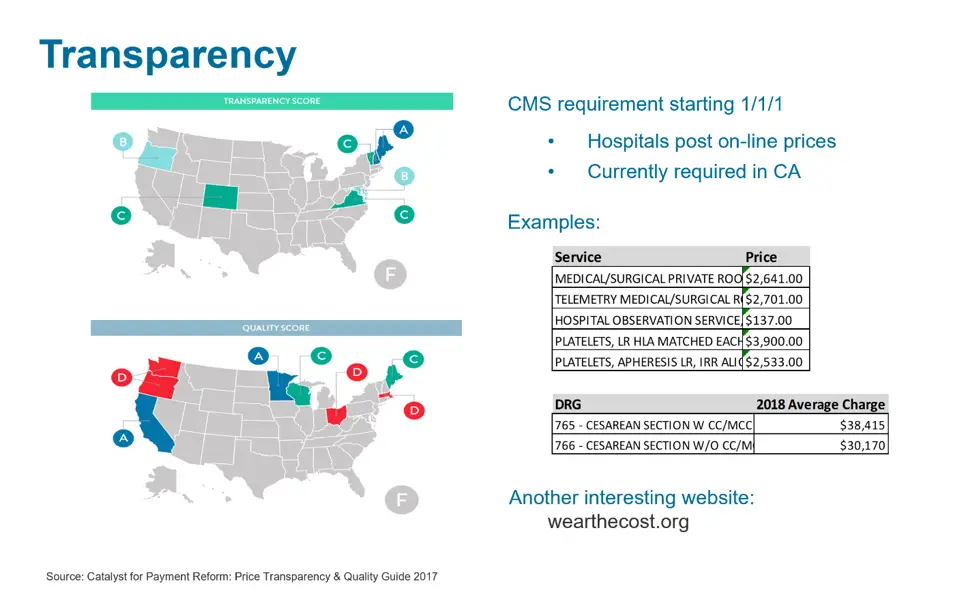

The coronavirus pandemic has affected every aspect of our lives, from how we work to how we get our health care. The crisis has put the creativity of many small businesses to the test after being forced to move operations online once social distancing became the norm. As economies reopen, many aspects of our life that changed in response to the virus will likely return to the way they were.
However, we have the opportunity to emerge stronger from this crisis if the salient shortcomings from our economic system are addressed. Regarding health care, the virus has exposed deep flaws in the way services are provided and has shown us how businesses and people can be better prepared when the next pandemic hits.
1. The way companies insure their workers will change
One trend we will likely see occurring is the decentralization of healthcare. Before the pandemic, there had been growing signs of American businesses becoming tired of a rigged system where costs to keep employees insured often spiraled out of control. One example of this dissatisfaction was the partnership between Amazon, JP Morgan, and Berkshire Hathaway, who more than 2 years ago announced the formation of their own joint venture to provide healthcare coverage to their employees.
The pandemic is going to introduce a long term change in healthcare and especially the relationship between companies and healthcare providers. More companies will make the switch to self-funded insurance and assume the healthcare expenses of their employees while being reimbursed for claims that exceed a certain amount through stop-loss insurance. Businesses will also start to hire their own physicians to offer services to their employees directly to reduce their dependence on the healthcare system.
Given our early struggle to increase our virus testing capabilities, companies may take steps to avoid waiting for the federal or local governments to step in during a pandemic. Businesses may start partnering with local labs to design their own diagnostic tools and serological tests which would allow them to react more quickly and successfully to an outbreak. Businesses will value knowing which of their employees have been exposed, how many might be immune, and which might be more susceptible to infection based on parameters such as BMI or blood pressure readings.
2. Businesses and people will take charge of their own health
Although the United States spends close to 20% of its GDP on healthcare, diseases that put people at higher risk for severe COVID-19 illness, including obesity, diabetes, and heart disease, are still prevalent in the population.
This crisis exposed the need for businesses to help employees maintain a healthy lifestyle in order to protect themselves and their jobs. Businesses may start promoting behaviors proven to strengthen the immune system and improve overall health, including taking active breaks at work to increase physical activity or encouraging healthy eating by offering healthy food choices. Companies may also start to offer testing equipment in office locations to help employees keep track of their health. Businesses may start investing in mini-physiology lab stations that include equipment to measure blood pressure, lung function, and heart health. They may also invest in blood tests that measure important biomarkers that allow employees to make better health choices that reduce their risk of disease.
3. Telehealth solutions will become widely available
The pandemic has amplified the need for a technology-driven transformation of healthcare. Companies can invest in built-in telemedicine capabilities so that employees have an easy way to get online care when they need it. The regulatory barriers that have delayed widespread use of telehealth should start to disappear. Hospitals can benefit from offering these services and implementing them now will better equip them for future crises. Doctors can remotely provide care to vulnerable patients so they don’t have to be exposed by going to a hospital, and physicians and nurses who have to quarantine themselves can still see patients through telehealth means so that hospitals don’t have to face staff shortages when they believe they might have been exposed.
4. Artificial Intelligence will change everything
The use of AI in healthcare will combine with the trends described above to completely disrupt healthcare, especially in terms of corporate wellness. Skyrocketing costs and disillusionment with the governmental response to COVID-19 will convince organizations of all sizes to take more direct responsibility for the health and wellness of their employees. Cloud-based systems can aggregate everything from electronic medical records to whole-genome sequences. Fitness trackers and other inexpensive devices can add real-time physiologic data that can be tracked over time.
All this data would be overwhelming for human physicians, but it’s perfect for AI-based systems. For example, an AI can continuously calculate the probabilities of dozens of diseases for each employee and generate automatic recommendations when a probability exceeds a certain threshold. Such systems can also give employees personalized advice to help them reduce such probabilities and return to a healthy state. The advice can range from lifestyle changes (nutrition, exercise, etc.) to supplements or further testing. These AI-based systems will grow in sophistication over time to rival – and even exceed – the capabilities of human physicians.
Summary
The American healthcare system was clearly dysfunctional even before COVID-19. However, the pandemic has put the flaws into sharp relief and will almost certainly push companies and other organizations to seek better solutions. Those solutions will leverage many recent developments including:
- Cloud platforms with nearly limitless storage and compute capacity
- Engaging mobile apps
- Direct-to-consumer molecular and genetic testing
- Fitness trackers and other medical devices
- Artificial intelligence
Together, these trends will usher in lasting change that will transform the healthcare landscape for all businesses.
About Dr. Don Brown
Don is a serial software entrepreneur (founder of 4 companies), life-long learner (4 degrees: a bachelor’s in physics, a master’s in computer science + biotechnology and an MD) and philanthropist (donated $30 million for the establishment of the Brown Immunotherapy Center at the Indiana University School of Medicine). Prior to LifeOmic, Don founded Software Artistry which became the first software company in Indiana ever to go public and was later acquired by IBM for $200 million. Don then founded and served as CEO of Interactive Intelligence which went public and was acquired by Genesys Telecommunications Laboratories in 2016 for $1.4 billion.